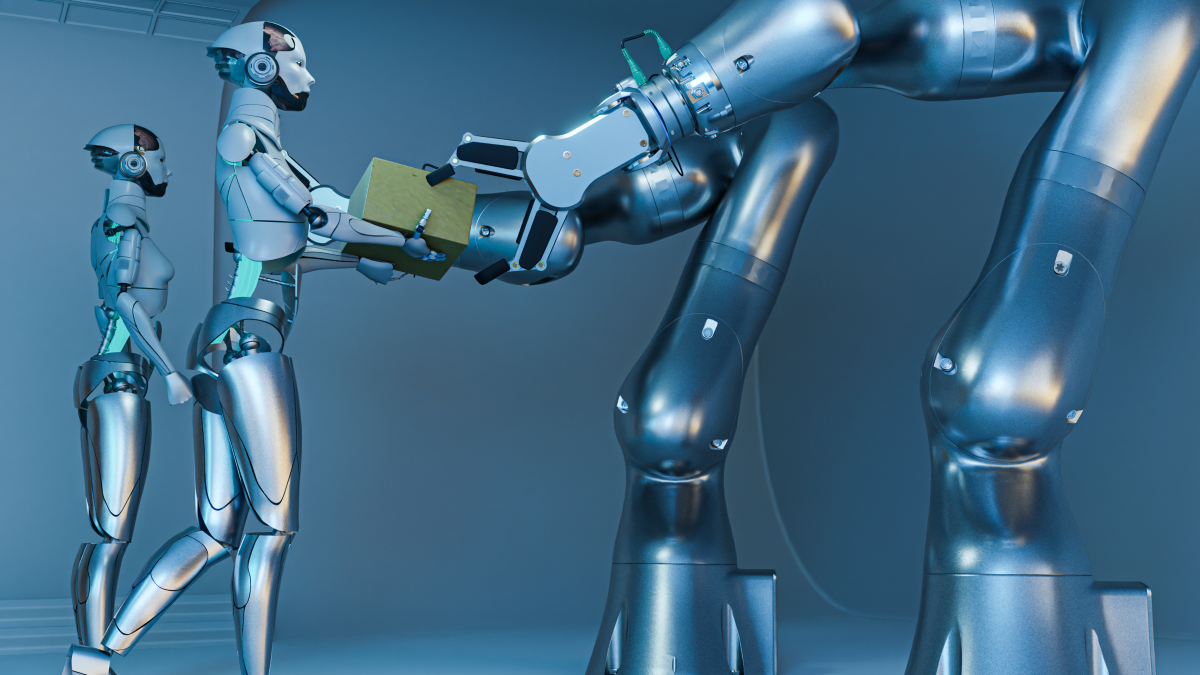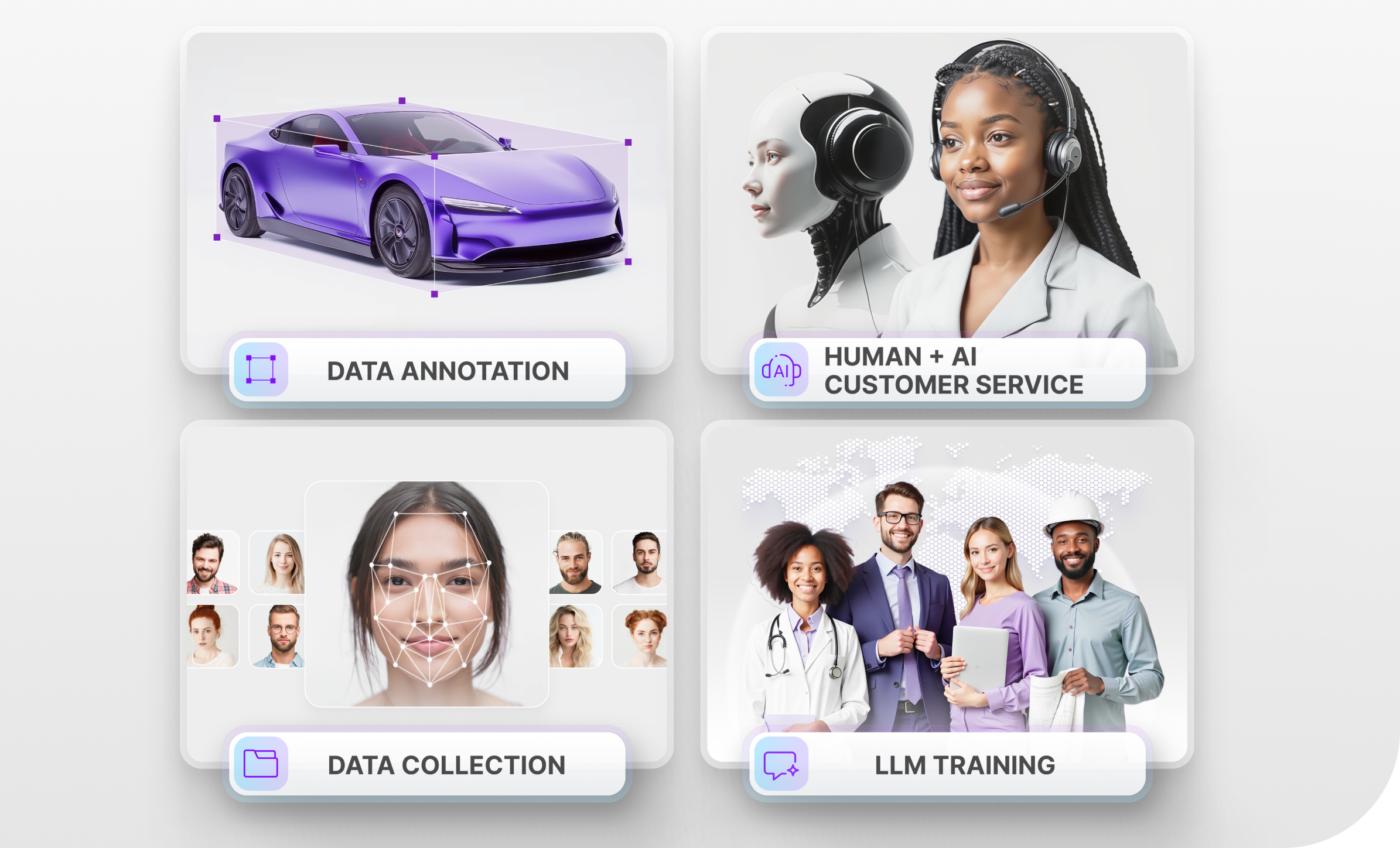The AI Trends Everybody Will Be Talking About in 2024
As we approach a future that will be heavily reliant on artificial intelligence (AI), a number of important factors demand the attention of both innovators and corporations. It is clear that AI has the unimaginable potential to transform industries, improve user experiences, and change the face of the economy. To realize this goal, however, a few fundamental components must be in place.
Future-proof versions will push the limits of what the hardware can handle. The success of these sophisticated models will depend on ground-breaking developments in hardware, computational power, datasets and the data annotation required to train the AI. The key question for 2024 will be how innovators respond to these challenges to ensure that the infrastructure supporting AI’s ambitious expansion can keep up with it.
Growth of generative AI Creativity

The fundamental potential of generative AI rests in enhancing and amplifying human talents, not in replacing human duties. By developing our imagination and democratizing invention, we can combine several thoughts to create ones that are more powerful and significant. Furthermore, organizations can quickly sketch a variety of design options using generative AI models. As a result, they are able to quickly traverse the market’s shifting tastes and remain innovative.
With AI continuing its relentless march into the creative realm, testing our preconceived assumptions, and opening doors we never knew existed, the year 2024 appears to have promise.
Growing demand for Computation Power

Deep learning model training is a labor-intensive procedure, especially given the massive volumes of data that today’s AI models demand. Powerful computational resources are now essential; without them, some models may have to undergo unreasonably lengthy training processes or may not even be able to be trained at all. Additionally, a lot of models must be trained simultaneously or quickly because the AI community is constantly experimenting with new architectures and hyperparameters, necessitating a setting where resources can scale effectively. These models are becoming more complicated due to the progress of AI itself. The need for computational resources increases as they get more complex with numerous parameters, especially during the training and fine-tuning stages.
Future-proof versions will push the limits of what the hardware can handle. The success of these sophisticated models will depend on ground-breaking developments in hardware and computational power, and the industry is at a critical crossroads. The key question for 2024 will be how innovators respond to this problem to ensure that the infrastructure supporting AI’s ambitious expansion can keep up with it.
AI Will Continue to Impact the Workplace

An age of unparalleled change is being ushered in by the workplace’s rapid adoption of AI technologies. “Every job will be impacted by AI,” according to Pieter den Hamer, and there will be an emphasis on augmentation rather than replacement. But what intrigues them is how this augmentation was made.
The impact of AI goes beyond traditional automation; it is also changing how we view work. Financial counselors and customer service agents, two professions traditionally assumed to be exclusively human, are now working together. Traditional roles are changing as human intuition and AI insights are combined, improving productivity and decision-making. The democratization of AI involves more than just technological change; it is also a change in mindset. The democratization of the digital workplace, supported by AI, envisions a time when technology prowess works in harmony with human inventiveness.
Expect to See More Regulation

Governments all over the world are focusing heavily on artificial intelligence due to its rapid ascent and influence on practically every aspect of our lives. Government legislation, the AI industry, and numerous organizations have a complex connection that changes as a result of the advancements and difficulties presented by AI.
Although legislative advancement sometimes lags behind the pace of AI technology, governments throughout the world are working to catch up. There is a clear and growing focus on AI governance, as evidenced by China’s preemptive regulations banning non-consensual deepfakes, the UK’s plan for a possibly game-changing bill in 2024, and the EU’s proactive steps toward formalizing an AI act by 2025.
Expanded Use of Synthetic Training Data

Synthetic data is information that has been intentionally manufactured to mimic real-world data, but has no connection to genuine events or activities. It can be produced using a variety of methods, such as rule-based generation, generative models like GANs and VAEs, or methods for data augmentation.
A fundamental tenet that is essential to an AI model’s effectiveness is that the model’s performance is intrinsically tied to the caliber and volume of the data that it was trained on. There is an unquenchable need for enormous data reservoirs, coupled with strict quality criteria, in the pursuit of refined AI models. The possible use of synthetic data, on the other hand, is a topic of growing discussion in the AI field. Can it effectively take the place of real-world data? While synthetic data may be sufficient in some circumstances, its use should be debated on a case-by-case basis.
Trust Mindy Support With All of Your Data Annotation Needs
Mindy Support is a global provider of data annotation services and is trusted by Fortune 500 and GAFAM companies. With more than ten years of experience under our belt and offices and representatives in Cyprus, Poland, Romania, The Netherlands, India, OAE, and Ukraine, Mindy Support’s team now stands strong with 2000+ professionals helping companies with their most advanced data annotation challenges.





